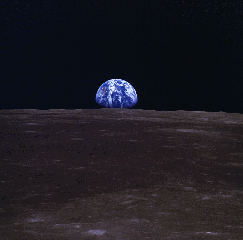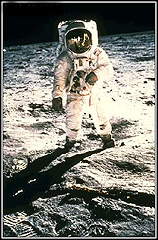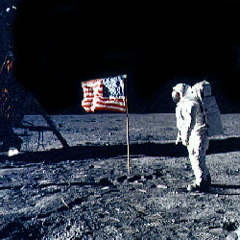| |
Victory for Humanity
...........From the baby steps of the
Greeks to the strides of the Renaissance men, never had such a leap
been made. But the chariot of Apollo wheeled from the myths of antiquity
to the sciences of modernity. The events that led man to the threshold
of space had no defined beginning. Stretching back to the dawn of
critical thought, humanity has been striving for a greater goal, an
extension of our knowledge and observation to ever-higher plateaus.
It was a challenge beyond all others, and one that we all participated
in. The events and people that led us into space were unique and spectacular,
but the driving force and chief concern in the extension of our exploratory
frontiers has always been a united commonality between riders of the
spaceship Earth. A common pursuit of that imperceptible truth that
lay just out of reach. A common need for that intangible security
that is found just beyond the next impasse. It was indeed competition,
and sometimes hatred that pushed men closer to space than ever before.
But behind that competition was an overwhelming need to know more,
see more, and be more---than ever before. It is an unquenchable thirst
and an unreachable goal. But we pursue it vicariously, vigorously
and with the highest of aspirations. That is a victory in itself.
|
|



